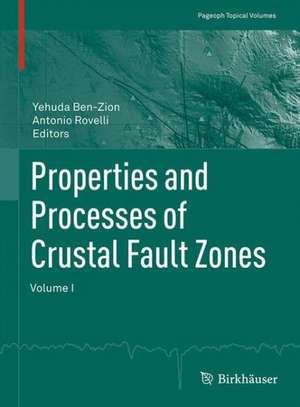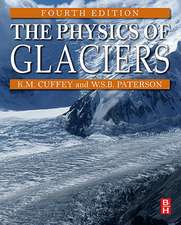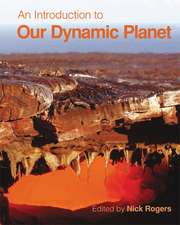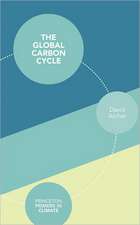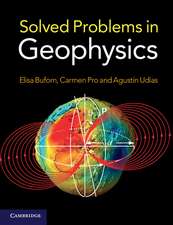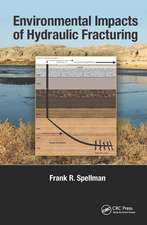Properties and Processes of Crustal Fault Zones: Volume I: Pageoph Topical Volumes
Editat de Yehuda Ben-Zion, Antonio Rovellien Limba Engleză Paperback – 25 mar 2015
The volume will be useful to students and professional researchers from Earth Sciences, Material Sciences, Physics and other disciplines, who are interested in properties and processes of earthquakes and faults.
| Toate formatele și edițiile | Preț | Express |
|---|---|---|
| Paperback (2) | 386.00 lei 38-44 zile | |
| Springer – 25 mar 2015 | 386.00 lei 38-44 zile | |
| Springer – 2 iun 2015 | 396.53 lei 38-44 zile |
Din seria Pageoph Topical Volumes
-
 Preț: 300.85 lei
Preț: 300.85 lei -
 Preț: 386.19 lei
Preț: 386.19 lei -
 Preț: 303.07 lei
Preț: 303.07 lei -
 Preț: 306.14 lei
Preț: 306.14 lei - 15%
 Preț: 720.73 lei
Preț: 720.73 lei -
 Preț: 397.38 lei
Preț: 397.38 lei -
 Preț: 314.52 lei
Preț: 314.52 lei - 15%
 Preț: 641.71 lei
Preț: 641.71 lei -
 Preț: 221.70 lei
Preț: 221.70 lei -
 Preț: 328.35 lei
Preț: 328.35 lei - 15%
 Preț: 726.94 lei
Preț: 726.94 lei -
 Preț: 308.55 lei
Preț: 308.55 lei -
 Preț: 320.20 lei
Preț: 320.20 lei -
 Preț: 384.70 lei
Preț: 384.70 lei -
 Preț: 301.10 lei
Preț: 301.10 lei -
 Preț: 298.66 lei
Preț: 298.66 lei -
 Preț: 299.34 lei
Preț: 299.34 lei -
 Preț: 324.18 lei
Preț: 324.18 lei -
 Preț: 392.75 lei
Preț: 392.75 lei -
 Preț: 312.97 lei
Preț: 312.97 lei -
 Preț: 307.88 lei
Preț: 307.88 lei -
 Preț: 387.96 lei
Preț: 387.96 lei -
 Preț: 405.06 lei
Preț: 405.06 lei -
 Preț: 386.00 lei
Preț: 386.00 lei -
 Preț: 396.40 lei
Preț: 396.40 lei -
 Preț: 404.29 lei
Preț: 404.29 lei -
 Preț: 391.99 lei
Preț: 391.99 lei -
 Preț: 351.49 lei
Preț: 351.49 lei - 18%
 Preț: 1106.46 lei
Preț: 1106.46 lei -
 Preț: 393.52 lei
Preț: 393.52 lei - 20%
 Preț: 568.74 lei
Preț: 568.74 lei -
 Preț: 388.72 lei
Preț: 388.72 lei -
 Preț: 380.07 lei
Preț: 380.07 lei - 15%
 Preț: 660.83 lei
Preț: 660.83 lei -
 Preț: 396.40 lei
Preț: 396.40 lei -
 Preț: 397.38 lei
Preț: 397.38 lei -
 Preț: 409.30 lei
Preț: 409.30 lei -
 Preț: 399.29 lei
Preț: 399.29 lei -
 Preț: 495.62 lei
Preț: 495.62 lei -
 Preț: 385.25 lei
Preț: 385.25 lei -
 Preț: 394.29 lei
Preț: 394.29 lei - 15%
 Preț: 647.27 lei
Preț: 647.27 lei -
 Preț: 400.47 lei
Preț: 400.47 lei -
 Preț: 395.25 lei
Preț: 395.25 lei - 15%
 Preț: 657.08 lei
Preț: 657.08 lei -
 Preț: 400.26 lei
Preț: 400.26 lei -
 Preț: 352.80 lei
Preț: 352.80 lei -
 Preț: 384.48 lei
Preț: 384.48 lei -
 Preț: 401.42 lei
Preț: 401.42 lei
Preț: 386.00 lei
Nou
Puncte Express: 579
Preț estimativ în valută:
73.87€ • 80.21$ • 62.05£
73.87€ • 80.21$ • 62.05£
Carte tipărită la comandă
Livrare economică 18-24 aprilie
Preluare comenzi: 021 569.72.76
Specificații
ISBN-13: 9783034808767
ISBN-10: 3034808763
Pagini: 312
Ilustrații: VIII, 312 p.
Dimensiuni: 193 x 260 x 22 mm
Greutate: 0.64 kg
Ediția:2015
Editura: Springer
Colecția Birkhäuser
Seria Pageoph Topical Volumes
Locul publicării:Basel, Switzerland
ISBN-10: 3034808763
Pagini: 312
Ilustrații: VIII, 312 p.
Dimensiuni: 193 x 260 x 22 mm
Greutate: 0.64 kg
Ediția:2015
Editura: Springer
Colecția Birkhäuser
Seria Pageoph Topical Volumes
Locul publicării:Basel, Switzerland
Public țintă
ResearchCuprins
Introduction by Ben-Zion, Y. and A. Rovelli.- Earthquake Rupturing in Fluid-Overpressured Crust: How Common? by Sibson, R..- Wet fault or dry fault? A laboratory approach to monitor at distance the hydromechanical state of a discontinuity using controlled source seismic by Place, J., O. Blake, A. Rietbrock and D. Faulkner.-Formation and suppression of strike-slip fault systems by Curren I. S. and P. Bird.- A statistical framework for calculating and assessing compositional linear trends within fault zones: A case study of the NE block of the Clark segment, San Jacinto fault, California, USA by Rockwell, B. G., G. H. Girty and T. K. Rockwell.- Interseismic strain localization in the San Jacinto fault zone by Lindsey, E. O. V. J. Sahakian, Y. Fialko, Y. Bock, S. Barbot and T. K. Rockwell.- Large earthquake hazard of the San Jacinto fault zone, CA, from long record of simulated seismicity assimilating the available instrumental and paleoseismic data by Zöller, G. and Y. Ben-Zion).- Imaging faults and shear zones using receiver functions by Schulte-Pelkum, V. and K. H. Mahan.- Seismic imaging of a bimaterial interface along the Hayward fault, CA, with fault zone head waves and direct P arrivals by Allam, A. A., Y. Ben-Zion and Z. Peng.- Joint Inversion of Body-Wave Arrival Times and Surface-Wave Dispersion for Three-Dimensional Seismic Structure Around SAFOD by Zhang, H., M. Maceira, P. Roux, and C. Thurber.- What Do Data Used to Develop Ground-Motion Prediction Equations Tell Us About Motions Near Faults? by Boore, D. M..- Ground Motion Prediction Equations in the San Jacinto Fault Zone – Significant Effects of Rupture Directivity and Fault Zone Amplification by Kurzon, I., F.L. Vernon, Y. Ben-Zion and G. Atkinson.- Wavefield polarization in fault zones of the western flank of Mt. Etna: observations and fracture orientation modeling by Panzera, F., M. Pischiutta, G. Lombardo, C. Monaco, A. Rovelli.- A continuum damage-breakage faulting model accounting for solid-granular transitions by Lyakhovsky, V. and Y. Ben-Zion.- Evolution of wear and friction along experimental faults by Boneh, Y., J. Chang, D.A., Lockner and Z. Reches.- Fault wear by damage evolution during steady-state slip by Lyakhovsky, V., A. Sagy, Y. Boneh and Z. Reches.- The Fluid Dynamics of Solid Mechanical Shear Zones by Veveakis, N. and K. Regenauer-Lieb.
Textul de pe ultima copertă
Recent theoretical developments, acquisitions of large seismic and other data sets, detailed geological studies, and novel laboratory experiments offer new opportunities for advancing the understanding of fault zone and earthquake processes. The present and a follow up volume provide broad state-of-the-art perspectives on earthquakes and crustal fault zones. Subjects discussed in this volume include fluids and faulting, characterization of fault zone materials, seismic ground motion, geodetic deformation, seismicity and hazard, imaging fault zone structures, experiments on fault evolution, and damage-based rheologies for shear deformation.
The volume will be useful to students and professional researchers from Earth Sciences, Material Sciences, Physics and other disciplines, who are interested in properties and processes of earthquakes and faults.
The volume will be useful to students and professional researchers from Earth Sciences, Material Sciences, Physics and other disciplines, who are interested in properties and processes of earthquakes and faults.
Caracteristici
Presents broad perspectives on crustal fault zones Presents the state-of-the-art in the field
